45–61 Merry Street, Motherwell, North Lanarkshire, ML1 1JJ
The story of Motherwell and steel began with David Colville, often referred to as the founding father of British Steel. His decision to convert the Dalzell Iron Works to open-hearth steel production laid the foundations for Motherwell’s period of industrial greatness. Others, such as the Brandon Iron Works, followed Colville’s lead. The Brandon Works (renamed Etna in 1887) opened in 1884 and covered a wide area immediately behind this pub. This whole area was redeveloped in the late 1960s/early 1970s and this had previously been Baird’s department store until the early 90s, but is now named after the iron works immediately to the rear of this site.
Prints and text about the early days of Motherwell.
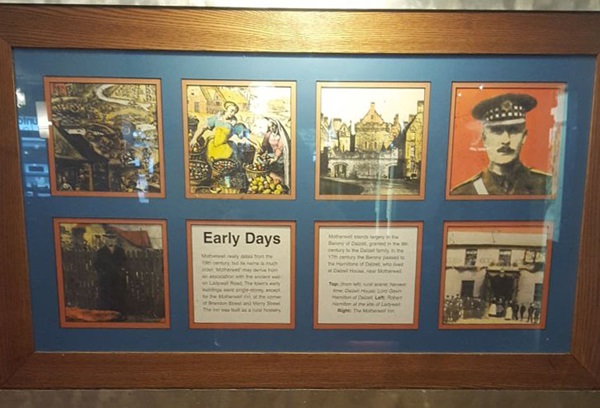
The text reads: Motherwell really dates from the 19th century, but its name is much more older. ‘Motherwell’ may derive from an association with the ancient well on Ladywell Road. The town’s early buildings were single-storey, except for the Motherwell Inn, at the corner of Brandon Street and Merry Street. The inn was built as a rural hostelry.
Motherwell stands largely in the Barony of Dalzell, granted in the 9th century to the Dalzell family. In the 17th century the Barony passed to the Hamiltons of Dalzell, who lived at Dalzell House, near Motherwell.
Top: (from left) rural scene; harvest time; Dazell House; Lord Gavin Hamilton of Dalzell
Left: Robert Hamilton at the site of Ladywell
Right: The Motherwell Inn.
Prints of industry workers.
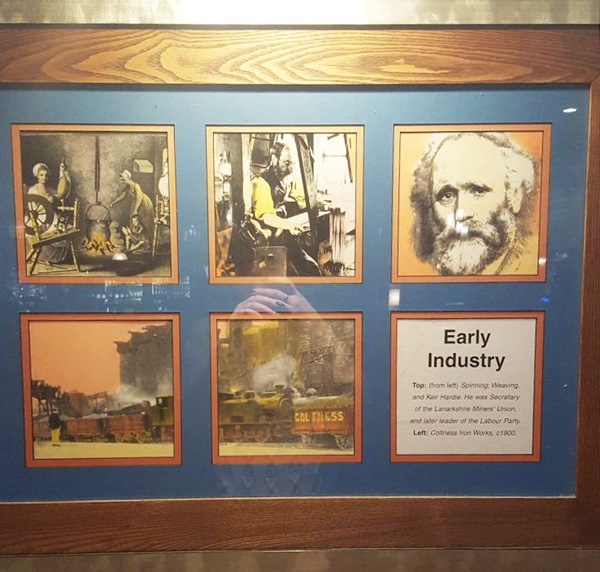
Top: (from left) spinning; weaving and Kier Hardie. He was secretary of the Lanarkshire Miners’ Union, and later the leader of the Labour Party
Left: Coltness Iron Works, c1900.
Prints and illustrations of Motherwell and Wishaw.
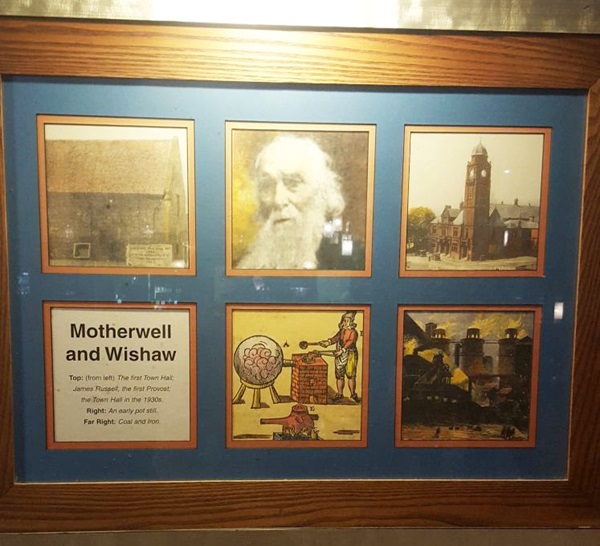
Top: (from left) the first Town Hall; James Russell, the first Provost; the Town Hall in the 1930s
Right: An early pot still
Far right: Coal and iron.
Prints, illustrations and text about Archibald Hamilton and Robert Owen.
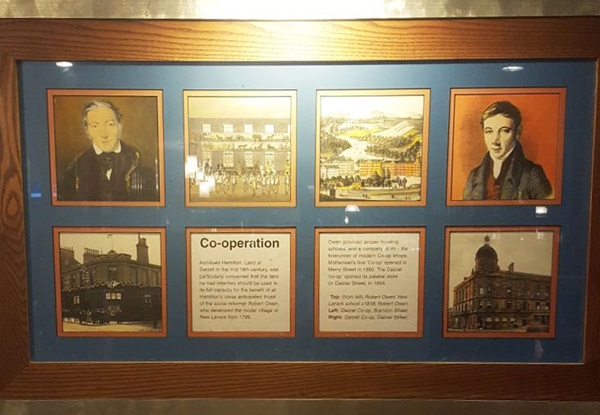
The text reads: Archibald Hamilton, laird of Dalzell in the mid 18th century, was particularly concerned that the land he had inherited should be used to its full capacity for the benefit of all. Hamilton’s ideas anticipated those of the social reformer Robert Owen, who developed the model village of New Lanark from 1799.
Owen provided proper housing; schools, and a company store – the forerunner of modern Co-op shops. Motherwell’s first Co-op opened in Merry Street in 1860. The Dalziel Co-op opened its palatial store on Dalziel Street, in 1894.
Top: (from left) Robert Owen, New Lanark school c1818; Robert Owen
Left: Dalziel Co-op, Brandon Street
Right: Dalziel Co-op, Dalziel Street.
External photograph of the building – main entrance.
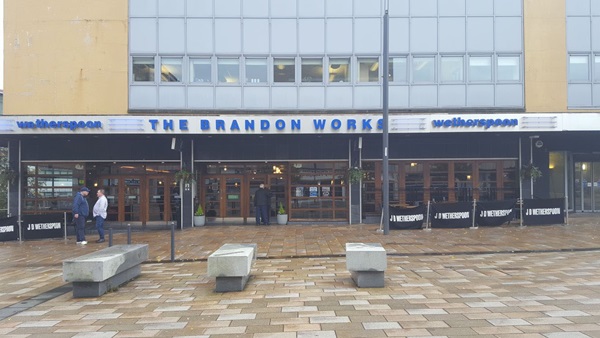
If you have information on the history of this pub, then we’d like you to share it with us. Please e-mail all information to: pubhistories@jdwetherspoon.co.uk